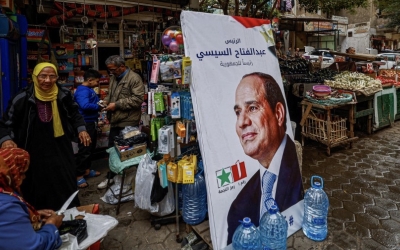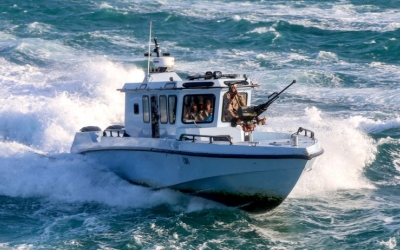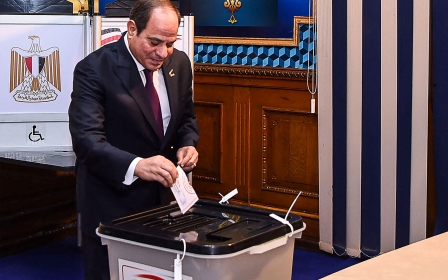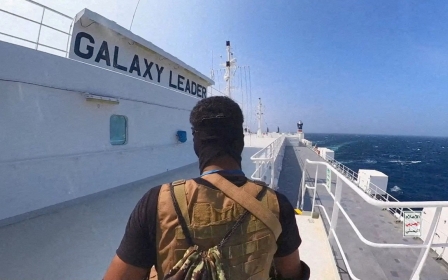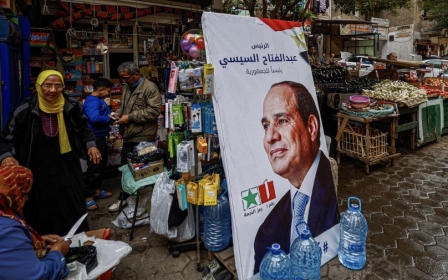Egypt's credit outlook revised to 'negative', as Red Sea attacks hit Suez Canal revenues
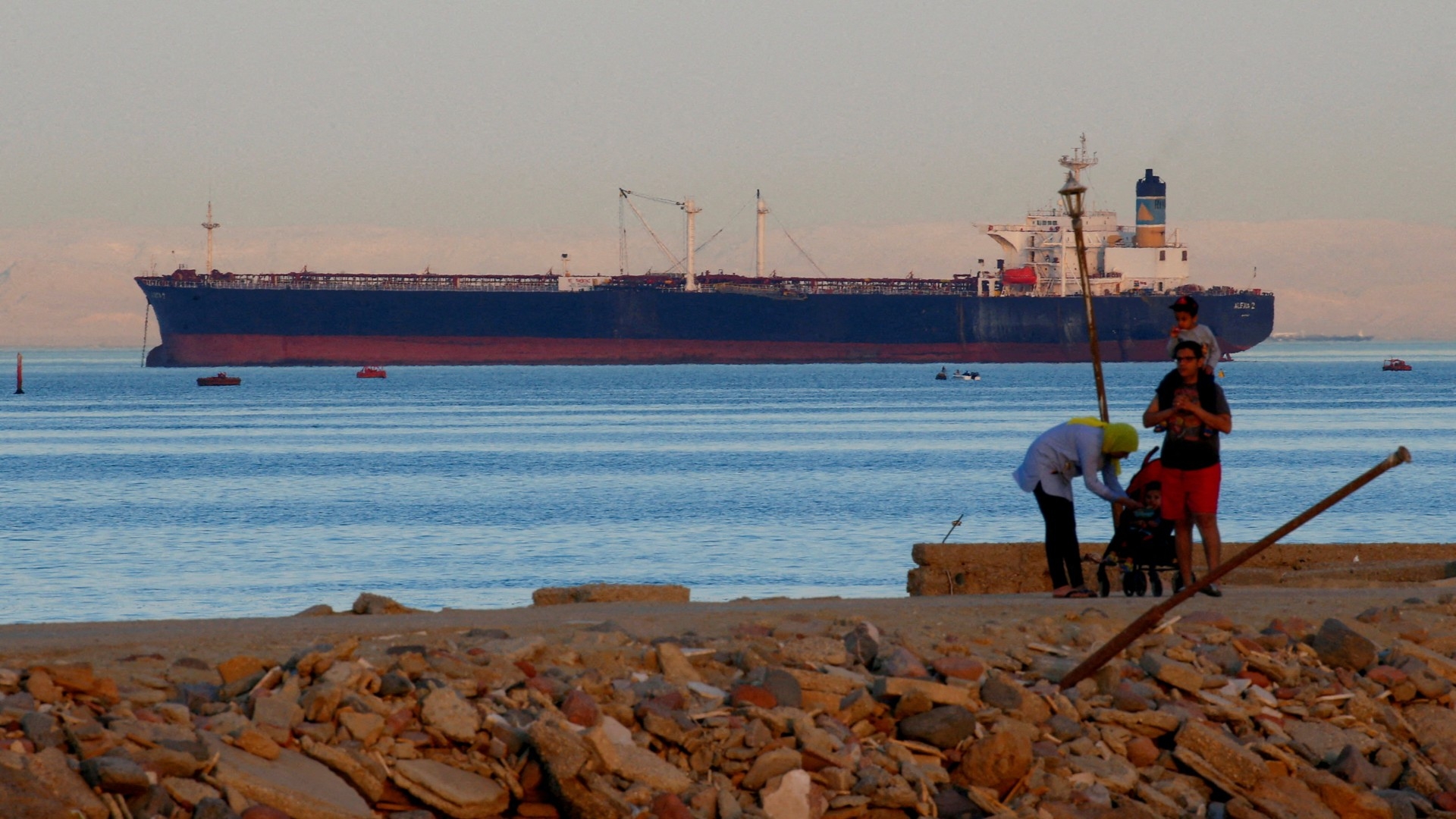
Egypt's credit outlook has been revised from "stable" to "negative" by ratings agency Moody's, amid a worsening currency and debt crisis in the country.
"A significant increase in interest payments and mounting external pressure have complicated the macroeconomic adjustment process," Moody's said in a statement late on Thursday.
Last year, Cairo initially agreed a $3bn rescue package with the International Monetary Fund (IMF) to revive the flagging economy, under stringent monetary and fiscal conditions.
The IMF delayed the payments of $700m of that due in 2023, however, after Egypt did not float its currency or make strides in selling state assets.
Despite the stalling, in recent weeks Egypt has been in talks with the IMF to significantly increase the package, particularly given the impact of the Israel-Palestine war on Cairo's economy.
The ratings agency added that continued financial support from the IMF would increase Cairo's debt affordability, but that "policy actions and external support may prove insufficient to prevent a debt restructuring".
Moody's said that there was a "high likelihood" that the IMF package would be boosted to as much as $10bn.
Prices have soared in the Middle East's most populous country, with inflation hitting a record high of 38 percent in September. The figure stood at 34.2 percent last month.
Austerity measures, which were thought to be delayed by President Abdel Fattah el-Sisi ahead of Egypt's presidential elections last month, will likely accelerate in the coming months.
Foreign currency shortage
Moody's statement came as the Egyptian pound this week plummeted to 60 to the US dollar on the black market. The official rate currently stands at just below 31 to the dollar.
Egypt has struggled with foreign currency availability for imports for several years now.
The Sisi government has embarked on a borrowing spree since he became president, which has tripled the national debt.
Since 2016, the president has undertaken a number of expensive projects that have failed to deliver promised benefits, prompting accusations that his government is prioritising mega-projects while a third of the country of over 113 million people live in poverty.
An economic crisis was exacerbated by the Covid-19 pandemic in 2020 disrupting trade and tourism, and was then compounded by Russia's invasion and subsequent war in Ukraine in March 2022.
The war increased the price of oil and food, especially wheat - of which Egypt is the world's largest importer, and Russia and Ukraine are among the largest suppliers.
Red Sea crisis
In recent months, Cairo's foreign currency reserves have been damaged by conflict once again.
In addition to a slowdown of trade and tourism in the region due to the war in Gaza, the Suez Canal - a key source of revenue for Egypt - has seen a slowdown in traffic due to several major shipping companies swerving the Red Sea over fears of being attacked by the Houthis.
The Houthis - the de-facto leaders of Yemen - have targeted several vessels with drone and missile strikes, in what they have described as an act of solidarity with Palestinians amid Israel's ongoing bombardment of Gaza.
Between 1 January and 11 January, traffic volumes were down 30 percent compared to last year, according to Osama Rabie, head of the Suez Canal Authority.
Earlier this week, Bloomberg reported that Cairo increased transit fees through the canal in an attempt to offset the damage.
“Because of security concerns, commercial ships may prefer longer routes than entering a war zone,” Rabie told Egypt's MBC Masr TV.
“Even if I decreased tariffs, it won’t have an impact, because these are security fears.”
Middle East Eye propose une couverture et une analyse indépendantes et incomparables du Moyen-Orient, de l’Afrique du Nord et d’autres régions du monde. Pour en savoir plus sur la reprise de ce contenu et les frais qui s’appliquent, veuillez remplir ce formulaire [en anglais]. Pour en savoir plus sur MEE, cliquez ici [en anglais].


